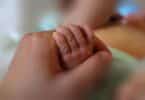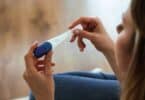
A new study indicates that the answer may rest in whether or not pregnancy is actually achieved. In this particular study, researchers at the National Institutes of Health followed more than 1,400 women who had been diagnosed with breast cancer before the age of 50 as well as more than 1,600 of their sisters who’d never been diagnosed with breast cancer. Of these women, 288 reported using follicle-stimulating hormones, clomiphene citrate and ovulations-stimulating fertility drugs, all drugs that are used to increase fertility. Of those that took the fertility drug, 141 of them reported a pregnancy that lasted at least 10 weeks after taking the drugs.
Overall, researchers found that the women who took the drugs and did not get pregnant had a slightly lower risk of developing breast cancer before reaching the age of 50. Those that took the drugs and achieved a pregnancy that lasted at least 10 weeks had a lightly higher risk of developing breast cancer than those that had not achieved pregnancy with the drugs.
One of the study’s authors, Clarice Weinberg of biostatistics at the National Institute of Environmental Health Sciences says that the findings suggest that it is possible that a pregnancy achieved with stimulating hormones may be enough to counteract any reduced risks received by taking the fertility drugs in the first place. However, she does suggest that women steer clear of fertility drugs because the risk of women who achieved pregnancy with the drugs was not much higher than women who had never taken the drugs at all.
“I don’t see the results as any cause for alarm,” Weinberg said. “But everyone needs to manage their risk and be careful.”
In fact, if anything, Dr. Marcelle Cedars, a professor of reproductive endocrinology at the University of California, San Francisco, who was not involved in the study, says that the findings should actually encourage women to take fertility drugs when needed.
“Even in the group at an increased risk after their pregnancy, their risk was not higher than the general public,” Cedars said. “If you use fertility drugs, you’re not increasing your risk.”
While researchers and experts are not certain, there are a few speculations as to why the findings ended up the way they did. Because the study looked specifically at ovulation-stimulating drugs, which push the ovaries into hyper-production so that more eggs can be produced, the estrogen hormone level of each woman’s body was increased. An increase in this hormone has previously been linked to breast cancer. For women that did not get pregnant, those hormone levels returned to normal shortly after ovulation. However, the women who did get pregnant continued to have a higher level of estrogen because of the pregnancy. Weinberg and her colleagues believe that this may play a part in why only women who had experienced pregnancy had a higher risk of breast cancer.
Louise Brinton, chief of hormonal reproductive epidemiology at NCI, who did not participate in the study, has a different theory, however. Clomiphene, taken by most of the women in the study, is a first-line fertility drug. It is also in the same drug family as the chemotherapy agent tamoxifen. This may explain why some women actually experienced a decreased risk of breast cancer. She also cites that women are at an increased risk of breast cancer anyway, especially if they are 30 or older. This applies whether they’ve taken fertility drugs or not.
“You would expect to see that women with recent pregnancies would be at increased risk,” Brinton said. “Then you start to see that risk turn into lifetime protection relative to women who have never had a pregnancy.”
In the end, Weinberg says that future research on fertility drugs and breast cancer should consider how pregnancy affects the breast cancer risk for younger women after taking fertility drugs.
Related Articles:
- Five Cups of Coffee a Day may Reduce IVF Success
- Last Few Weeks of Pregnancy May Impact Academic Performance Later in Childhood
- Estimated Five Million Babies Born via IVF since First Test-Tube Baby
SOURCE
Image credit: nobilior / 123RF Stock Photo






